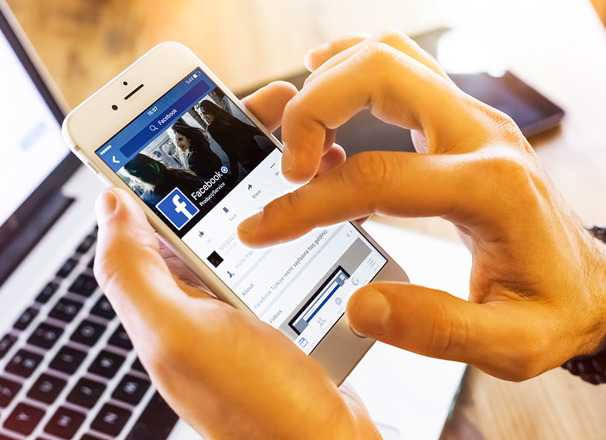Canadian teens love social media. They use it to get their news, stay in touch with friends, share content, and learn about the world.
Social media can be a powerful force for the good, but it can take you to the dark side.
A social media mistake you make in high school can have serious consequences. It can cost you a scholarship or a post-secondary placement. It can get you fired.
The good news?
You’re in charge of your social media. You have the power to use it safely and well.
The good and the bad
Social media can help you build connections. It can help you express yourself and make friends. But it can also leave you feeling frustrated, paranoid, and lonely.
Social media can help you figure out who you are and what you want to be. On the other hand, it can expose you to peer pressure that can make you feel insecure and can force you to pretend you’re someone you’re not.
Social media can create a community that gives you support and inspiration. On the other hand, it can be a distraction that steals the time you might be spending on other fun, important things.
Social media can help you learn about the world. On the other hand, it can trap you in an echo chamber where you only hear ideas and opinions that reinforce your own.
Social media can create a positive brand that helps you find a job, build a career, and reach your goals in life. On the other hand an inappropriate photo or an off-colour joke can come back to bite you—even years later.
Be social savvy
A sarcastic comment, or a rant can come back to haunt you. Even if no offence was intended. And even if it happened so long ago that you have forgotten.
Just ask Ben Tracy. As a new college grad, he landed the job of personal assistant to a state governor in the US. He was fired 24 hours after he started. The reason? Insensitive, homophobic tweets he had written in high school. He didn’t even remember typing them, but they were found on his account.
Employers check social media profiles
Before they hire
A 2022 survey found that 65% of Canadian companies check at least some applicants’ social media profiles before offering them a job. 54% use social media to screen every candidate. 41% reported finding content that caused them not to hire.
41%? So almost half of the applicants who were checked didn’t get the job because of something found on social media! That’s a lot of job candidates out of the running.
When they have vacancies to fill
In a 2022 survey, 1 in 3 Canadian companies said social media is the best tool they have for filling vacancies and finding new employees. A positive social media profile can make a difference.
Just being on social media isn’t enough. To impress a prospective employer, you need to be visible and engaged, with an active network. You need to have compelling content—and it doesn’t hurt to show that you’ve interacted with the company’s social media accounts.
Whenever they want to check up on their staff
A 2022 survey found that 86% of Canadian employers would fire someone for an inappropriate social media post that:
- Damaged the company’s reputation
- In 2019, a Toronto manager was fired for mocking his company’s Christmas gifts on Twitter.
- Revealed confidential company information
- Mentioned underage drinking or illegal drug use
- Violated the company’s social media policy
- In 2021 the Toronto Marlies minor league affiliate of the Toronto Maple Leafs unhired Dusty Imoo for inappropriate comments on Twitter because they went against the league’s commitment to diversity and inclusion. It didn’t matter that Imoo had already deleted his account.
Educational institutions check profiles too
What you post on social media can affect your admission to a college or university. It can also affect your chances of winning a scholarship.
The national chairperson of the Canadian Federation of Students warns that “students need to take responsibility for what they put online, and the consequences it can have.”
In 2017, 10 smart students who had earned admission to Harvard had their acceptance revoked for posting memes mocking sexual assault, the Holocaust, and child abuse.
That kind of content is never appropriate.
Take control of your social media life
Be safe
Sharing personal information on social media can put your safety and privacy at risk. Following these tips can help you stay safe:
- Use strong passwords and multi-factor authentication for your online accounts.
- Read the privacy policy and terms and conditions. If anything you read makes you uncomfortable, don’t sign up!
- Control what information is shared by customizing your privacy settings.
- Don’t share more than you need to. Sharing your location can let criminals know where you live or work and can make it easier to hack your accounts.
- Beware of scams. Delete suspicious messages without opening them. Don’t click on suspicious links.
- Turn off your camera when you’re not using it. Hackers who manage to get remote access to your device can use your camera to record you.
- Remember to log off and clear your browsing history, especially if you’re using a shared device.
Tip:
Read the graphic novel Social Smarts: Privacy, the Internet and You published by the Office of the Privacy Commissioner of Canada.
Read this MediaSmarts guide for a teen’s connected online life.
Be selective
Decide where to invest your time
If you’re using social media to get into a good university or find a job, focus your efforts. After all, how many social media accounts do you really need? Before posting, ask yourself, is this the best platform for building my personal brand and showcasing my skills?
Be purposeful about your posts
Check your facts and ask yourself:
- What’s my goal in posting this?
- Does this represent me at my best?
- Can someone use this to hurt me?
- Will I be comfortable about this in the future?
Remember, what you share, retweet, tag, or comment on says as much about you as the content you create. Be smart about responding—you won’t regret it.
Avoid overposting
If you’re wondering if you’re posting too often, you probably are.
Overposting is a red flag for employers. It creates the impression that all you do is follow social media. Employers may wonder about your work ethic.
Tip:
Check out these 13 tips for posting etiquette.
Overposting selfies is especially troublesome. It can make you seem pretty self-centred. It can also signal social media addiction.
Avoid oversharing personal information
It’s called personal info for a reason. Sharing personal info can give people reason to judge you or make unfair assumptions. Keep intimate details and photographs of your love life offline. Likewise, bragging about wild parties and posting profanity or off-colour jokes is not likely to impress a future employer.
Be respectful
Think before you post
T.H.I.N.K. before you post or share online. Make sure what you’re saying is True, Helpful, Inspiring, Necessary, and Kind.
Be clear and direct about how you feel and what matters to you. Say what you mean. And think about the long term.
Your social media accounts reflect on you—possibly forever. So protect your reputation. And remember that what’s acceptable to some people may be offensive for others.
Ask yourself: “Would I say this (or show this) to Grandma?” If the answer is no, don’t post!
Follow the golden rule
Treat others as you want to be treated. Be polite. Be genuine. And don’t say something online that you wouldn’t say in person.
- Be respectful of other people’s privacy, personhood, feelings, and opinions.
- Don’t share other people’s photos, personal info or news without permission.
- Don’t gossip.
- Don’t make personal attacks.
- Don’t post discriminatory or offensive comments about people’s race, religion, or gender.
Watch your language
Social media can’t tell if you’re trying to be funny or sarcastic. But words matter. You can hurt other people’s feelings without meaning to. And you can get hurt too.
If that happens, stop and consider that the offence might have been unintended. Talk things through face-to-face, if you can.
Don’t feed the trolls!
Online fighting is just not worth it. If a social media conversation gets out of hand, take a step back from the situation. Your future self will thank you.
Take a break if you need one
In the 2018 Canadian Internet Use Survey, teens between the ages of 15 and 19 reported several negative consequences of their social media use:
- 47% lost sleep
- 36% had trouble concentrating
- about 20% felt anxious, depressed, envious, frustrated, or angry
Tip:
Read these tips for having a healthier relationship with social media.
Check out this article for tips on how to take back control.
If social media is bringing you down, you need to take control.
- Set an alarm. Be mindful of the time you’re spending on social media.
- Turn off app notifications. Cut down on your responses to social media demands.
- Leave your device in another room when you go to bed.
- Unplug for a while! It can lower your stress and be good for your health.
- Get professional help if you need it.
Clean up your act
Use these tips to clean up your social media and get ready for life after high school.
- Update your social media profiles and posts to ensure they’re consistent and current. Refresh your bio, profile photo, URLs, headlines, and usernames.
- Close social media accounts you don’t use anymore and ask the company to delete your data from its servers.
- Google yourself. Delete photos and information you’re no longer comfortable with or you don’t want public. Get rid of anything that could show you in a bad light or leave a bad impression.
Experts advise that a deep clean is better than a complete whitewash. Employers expect your social media profiles to show some character and personality. If they don’t, you come across like a fake.
- Declutter your friends and follow lists. Mute, unfollow, or unfriend people and accounts that don’t interest you. Life is too short to waste on posts you don’t care about from people you’d rather not hear from.
- Manage what others have posted about you. Check where you’ve been tagged in photos. Remove the tag or ask the person who posted it to take the photo down.



